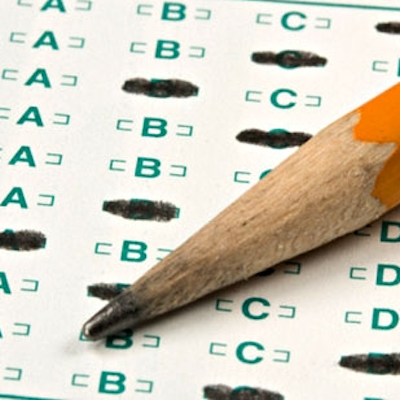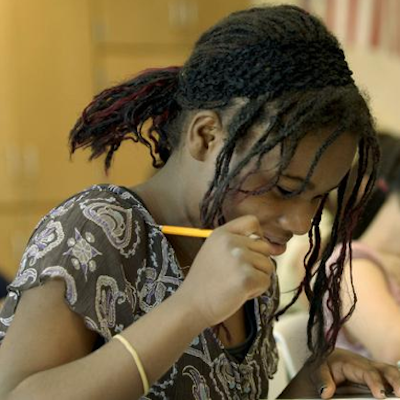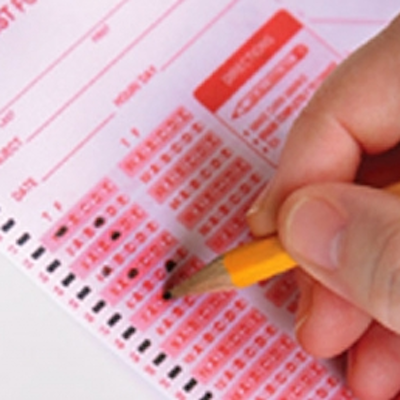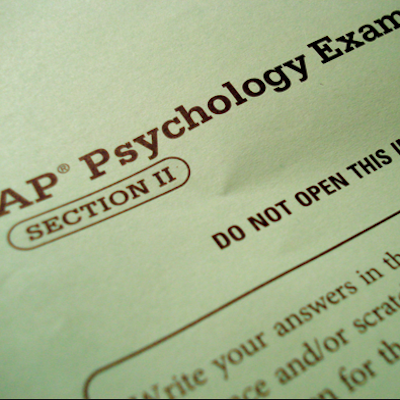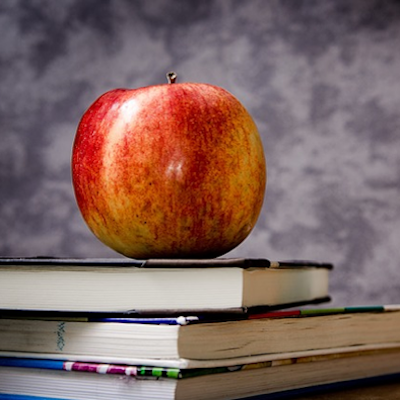It’s All About Education: Reading for Pleasure Predicts Academic Success
Wednesday, June 10, 2015
In education, we’re always looking for the magic bullet – that one thing that will help children to succeed, that will help eliminate the achievement gap once and for all. If we lengthen the school day, will that increase scores? If we provide our students with better-trained teachers, will they learn more? Will more or less recess time help students focus on academics?
There are many things that have a positive effect on achievement: family income level, enriching early childhood experiences, warm and positive relationships with caring adults, even daily family meals. It seems obvious that a child who is not having his basic needs met (a safe and nurturing home environment, a healthy body and mind, food security) will have a more difficult time in school.
All of these factors are important, and as a society, we need to prioritize them. But there is one thing that we can do, as parents and as educators, to help every student achieve more in school right now. Bryan Caplan, noted author and professor of Economics at George Mason University, recently revisited a study of how American students spend their time.
GET THE LATEST BREAKING NEWS HERE -- SIGN UP FOR GOLOCAL FREE DAILY EBLASTIn the study published in 2001, researchers measured the time students ages birth to twelve spent on various activities such as eating, sleeping, playing sports, watching television, reading, studying, etc. After controlling for family and child background, the researchers found that there were few significant activities that were correlated with student scores on the Woodcock-Johnson Achievement Tests.
In fact, the amount of time spent studying had almost no correlation with high test scores; similarly, students who spent a great deal of time watching television did not have significantly lower test scores. Out of nineteen activities, there were only two that predicted greater academic success across the board: visiting (which includes time spent in youth groups) and reading. Visiting had a small positive correlation, but reading had a large positive correlation.
Children who spent time reading for pleasure scored significantly higher on tests of cognitive ability, regardless of their age. In addition, the researchers found that time spent eating and sleeping was positively linked to good behavior in school. In other words, if parents are looking for things to do at home to give their children the best chance at success, they should make sure that they are eating and sleeping well and spending time reading for pleasure.
The UK’s Institute of Education published a study in 2013 confirming that children who read for pleasure perform significantly better than their non-reading peers in mathematics, vocabulary and spelling. From ages 10 – 16, reading for pleasure was found to be even more important for children’s cognitive development than their parents’ level of educational attainment.
Of course, this doesn’t mean that activities like playing outside, talking with friends, and participating in organized sports have no value. Children need lots of different experiences to become well-rounded, empathetic individuals. However, if there is one activity we can encourage our children to do that impacts their academic achievement, it is reading for pleasure.
Every teacher in every school should have one assignment each night: for students to read. Time spent reading – regardless of the reading material, whether classic literature or graphic novels or comic books – will have a greater positive effect on achievement than a page full of computation problems. Parents should ensure that their children have time to read every evening.
Although public libraries have had dramatic decreases in their funding over the past decade, they play a vital role in our communities. In 2013, the Pew Research Center reported that 61% of Americans ages 16 and older had a library card and that 48% of them had visited a library in the past 12 months. Libraries are valuable because, as the Charles H. Revson Foundation states, “Libraries do more to fight inequality than anything else in the city — for they provide universal access to the world of words.”
There is not one magic bullet that will fix our education system and ensure that all children succeed. But reading for pleasure is positively correlated with academic achievement at all ages and grade levels, regardless of parental income or background. Reading is a means of acquiring knowledge and traveling beyond our own experiences. Raising a generation of citizens who love to read will help us to achieve our potential as a nation.
Lauri Lee is an independent consultant with over twenty years of experience in both public and private education, with learners from infants through adults. With experience in teaching, marketing, communications, social media, development, admissions, and technology, she is able to synthesize many of the issues facing our educational system today. She lives in Providence, RI with her family, a big dog, and a small cat. She blogs at http://www.AllAboutEducation.net; and you can follow her on Twitter at @fridovichlee.
Related Slideshow: 10 RI State Education Rankings
Related Articles
- It’s All About Education: A Recipe for Disaster - Common Core Standards for Kindergarten
- It’s All About Education: Free College Tuition - Why Just Community College?
- It’s All About Education: Inequities in the College Admissions Process
- It’s All About Education: Is the American Dream a Pipe Dream?
- It’s All About Education: How Vaccination Affects Schools – and Society
- It’s All About Education: Schools that Harness the Power of Nature
- It’s All About Education: Social Promotion is Not the Problem
- It’s All About Education: How Can We Ensure that Kids Have Great Teachers?
- It’s All About Education: The High Cost of Higher Education
- It’s All About Education: The Rise in Kindergarten Readiness Testing
- It’s All About Education: Some of Education’s Best Ideas from 2014
- It’s All About Education: Changing Lives with School Lunches
- It’s All About Education: How Breakfast Could Help Close the Achievement Gap
- It’s All About Education: Re-Imagining Our Educational System
- It’s All About Education: How Poverty Impacts Brain Development and Learning
- It’s All About Education: Can Education Drive Social Change?
- It’s All About Education: High-Quality Early Learning: Necessary For All
- It’s All About Education: The Arts, Education, and Transformation
- It’s All About Education: Making a Commitment to Rhode Island’s Children
- It’s All About Education: School Choice - Vouchers and Tax-Credit Scholarships Don’t Pay
- It’s All About Education: Choosing the Right School for Your Child
- It’s All About Education: After School Programs Make a Difference
- It’s All About Education: Learning Life Skills at Hope High
- It’s All About Education: Failure to Launch - It’s Not Just a Movie
- It’s All About Education: A Broader Definition of Education



